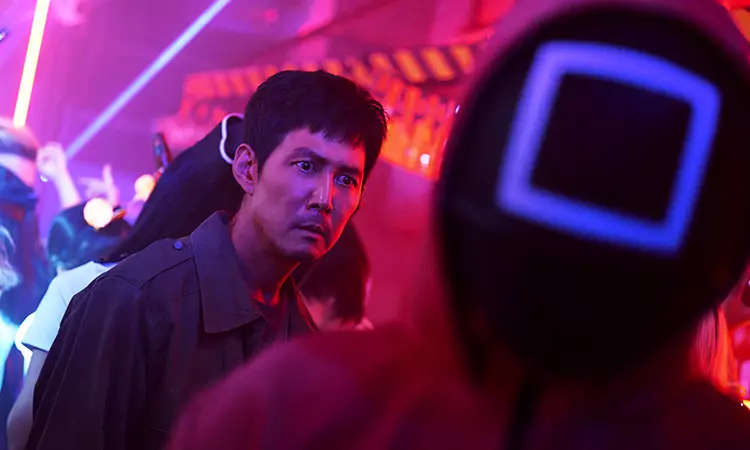With the highly anticipated release of ‘Squid Game’ Season 2 just around the corner, scheduled to debut on Netflix this December, fans of the series are buzzing with excitement. The hit show’s creator, Hwang Dong-hyuk, alongside lead actors Lee Jung-jae and Wi Ha-jun, recently showcased the first teaser trailer at Lucca Comics & Games, the largest Comic Con event in Europe. This public appearance has only fueled the ongoing discussions about the future of the series, its themes, and its potential adaptations.
As the narrative picks up once again, viewers can expect Lee Jung-jae to reprise his role as Seong Gi-hun, or Player 456. Gi-hun’s transformation from a desperate contestant seeking survival to a determined whistleblower aiming to unveil the grim realities behind the deadly competition reflects the show’s growth. Far from merely being a game contestant, he is now confronted with distrust from other players who question his motives. This pivot in character adds depth to the story and sets up an intriguing dynamic as audiences are presented with a protagonist who carries the weight of guilt and past experiences.
Moreover, the teaser hints at the return of Lee Byung-hun as the enigmatic Front Man, whose true agenda remains shrouded in mystery. Meanwhile, Wi Ha-jun’s character, the dogged detective Hwang Jun-ho, adds another layer of intrigue as he seeks answers and justice in a world fraught with deception and danger. The interplay between these characters promises to heighten the suspense and emotional stakes of the upcoming season.
A significant topic of discussion at the aforementioned event was the possibility of a remake by acclaimed director David Fincher, initially reported by Deadline. Hwang addressed these rumors with a mix of respect and a hint of possessiveness over his creation. While acknowledging Fincher’s illustrious career, he reminded the audience that ‘Squid Game’ remains his intellectual property. This interplay of respect between creators hints at the inherent complexities surrounding adaptations and ownership within the entertainment industry.
Furthermore, Hwang expressed his thoughts on the reality show inspired by ‘Squid Game’ that Netflix launched last year. His perception of the reality series serves as an interesting critique of capitalism and the entertainment industry’s mechanisms. While he has watched the show occasionally, he remains unbothered by the potential dilution of his original narrative. Instead, he seems to view the reality series as an organic offshoot of his work, rather than a threat to its thematic resonance.
In the ongoing discourse about ‘Squid Game’, Hwang highlighted the inherent tensions within capitalist societies. His concern that the commercialization of his show might detract from its message raises crucial questions about the nature of artistic expression and its commodification. While the themes of exploitation and critique of capitalism are foundational to the show, the reality series complicates this narrative by introducing a cash prize element. Hwang’s perspective suggests a nuanced understanding of capitalism; he doesn’t shy away from the economic realities of creating art for profit.
Curiously, his assertion that it’s “only natural” for Netflix to expand upon its successful intellectual property taps into the understanding that modern entertainment exists within an ecosystem of revenue generation. He does not see this commercialization as inherently detrimental to the essence of ‘Squid Game.’ In fact, he argues that every industry thrives on evolving market strategies, reflecting an era where brands constantly engage and expand upon their most successful offerings.
As fans prepare for the return of ‘Squid Game’, they do so with heightened expectations and critical awareness of the various factors at play. While the excitement surrounding the new season cannot be denied, there remains a measure of skepticism about how it will navigate the themes that originally captivated viewers. Will the narrative maintain its biting critique of society, or will it become another piece of consumable entertainment in a capitalist framework? The answer may lie in how effectively the show continues to blend thrilling storytelling with meaningful commentary, a delicate balance that made its first season so irresistibly compelling. Only time will tell if ‘Squid Game’ Season 2 lives up to the monumental legacy of its predecessor, but the anticipation itself is undeniably part of the allure.

